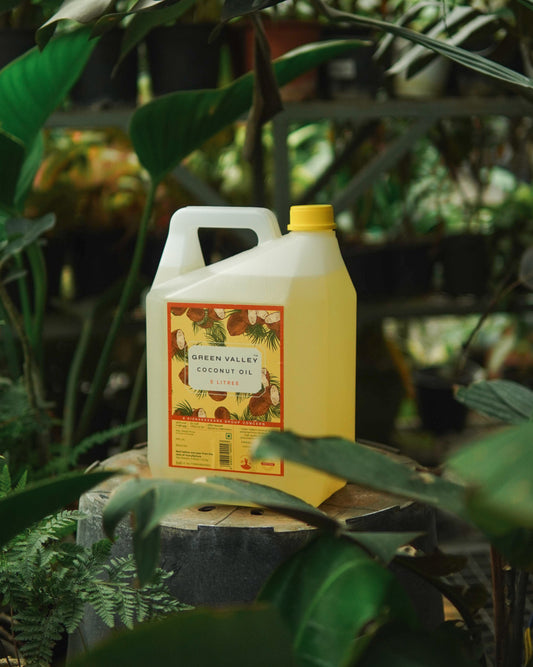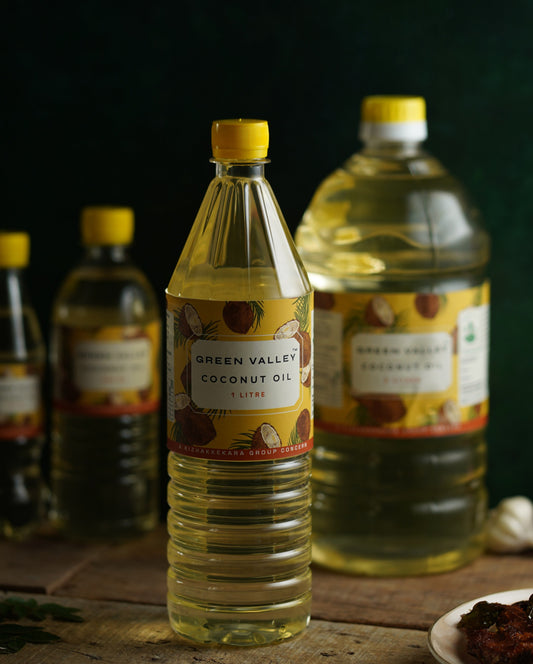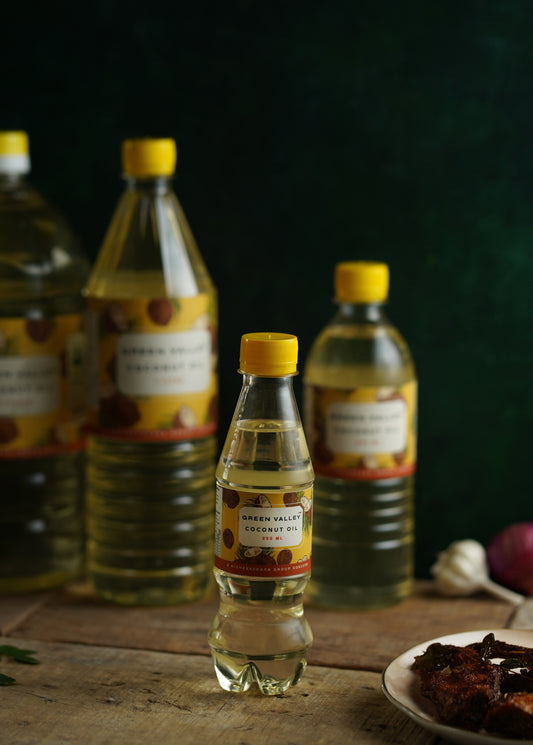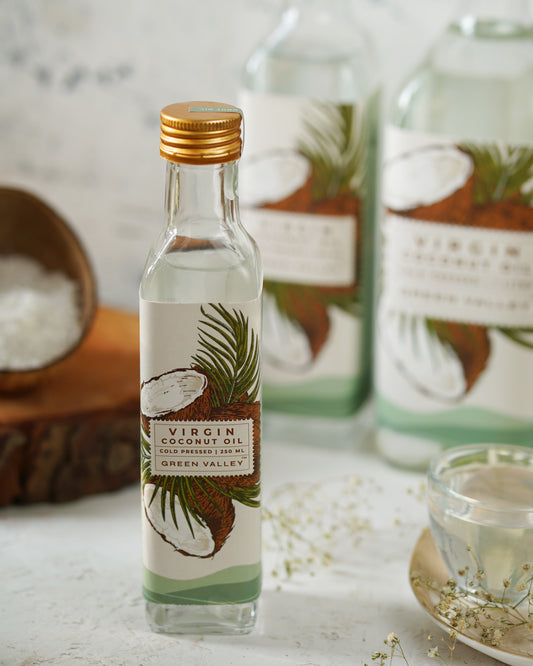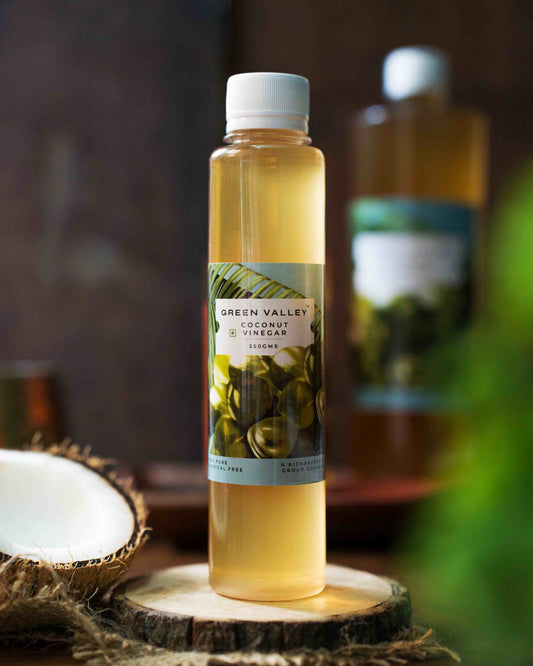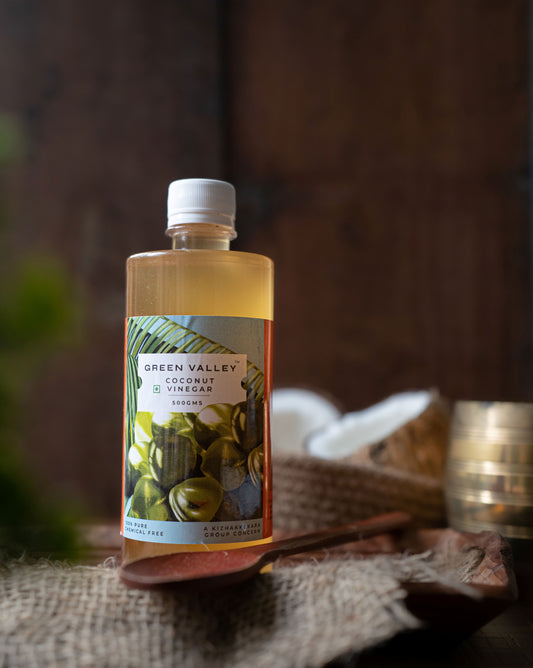Cooking with coconut oil is one of the numerous precious traditions passed down through generations in the tropical countries of Asia. Grandmothers and mothers schedule a call at least once a week to check if their offspring have done their ritualistic coconut oil massage for the week. Anyone immigrating to countries abroad has a considerable space in the suitcase reserved for bottles of coconut oil.
In recent years, this tropical oil has gone from a humble kitchen staple to a health superstar, praised for its unique flavour and nutritional profile. But what exactly makes it so great for cooking? Some folks think it’s magic; others think it’s just hype.
So, what’s the real deal? Let’s look closely at the benefits of using coconut oil in your cooking and why you might want to give your regular cooking oils a little tropical twist.
1. High Heat Stability
Let’s start with one of the biggest perks: heat stability. Coconut oil is naturally high in saturated fats, making it more resistant to heat than many other oils. When you’re cooking at high temperatures, some oils can break down and release harmful compounds. But coconut oil has a higher smoke point, around 350°F (175°C) for unrefined and 400°F (204°C) for refined, which means it can withstand high-heat cooking methods like frying, sautéing, and roasting without turning into a charred mess.
So, if you’re the type who loves a good stir-fry or crispy roasted veggies, coconut oil might just become your go-to cooking companion. Plus, no more worrying about those questionable fumes when you turn up the heat!
2. Rich in Medium-Chain Triglycerides (MCTs)
MCTs are like the instant noodles of the fat world—quick, easy, and ready to go when your body needs energy. Coconut oil is around 60% medium-chain triglycerides, which are metabolized faster than other fats. Here’s why that’s cool: unlike long-chain fats that linger in your digestive system, MCTs are quickly absorbed and sent straight to your liver, where they can be used immediately as energy.
This process provides a clean energy source, avoiding the sluggish post-meal feel you sometimes get from heavy fats. If you’re someone who hits the gym, goes on regular morning runs, or just needs a boost in the morning without feeling weighed down, cooking with coconut oil can give your body quick, accessible energy to start the day off right. It’s like having a secret power-up in your kitchen!
3. May Aid in Weight Management
While coconut oil isn’t a magic weight-loss potion (imagine the line at the store if it were!), its MCT content can potentially help with weight management. Studies have shown that MCTs may boost metabolism and increase the body’s ability to burn calories. When used in moderation as part of a balanced diet, cooking with coconut oil could provide an extra edge in maintaining or managing your weight.
There’s more: MCTs are also known to promote a feeling of fullness, which might help curb those pesky snack cravings. So, if you find yourself raiding the pantry two hours after dinner, adding a bit of coconut oil to your meals might help you feel satisfied for longer. Remember, though—like all good things, coconut oil should be enjoyed in moderation. A little goes a long way!
4. Antimicrobial Properties
Did you know that coconut oil has natural antimicrobial properties? Thanks to its lauric acid content (about 50% of its fat makeup), coconut oil can fight off harmful microorganisms that might be lurking in your system. Lauric acid has been shown to inhibit the growth of certain bacteria, viruses, and fungi. So, while cooking with coconut oil won’t transform your kitchen into a sterile lab, it can add a little extra layer of cleanliness to your cooking.
This antimicrobial quality is especially beneficial if you’re cooking with ingredients that carry a higher risk of contamination, like raw vegetables or meats. So, the next time you sauté those garlic cloves or marinate some chicken in coconut oil, you can feel good knowing you’re adding a natural antimicrobial to the mix. It’s almost like coconut oil comes with its health insurance for your food!
5. Distinct Flavor and Versatility
If you’ve ever cooked with coconut oil, you know it brings its unique flavour profile to the table. Coconut oil has a mild, slightly sweet aroma that can add a tropical hint to dishes without overpowering them. For fans of coconut, this is an absolute dream—imagine a subtle coconut undertone in your curries, stir-fries, or baked goods. Suddenly, your everyday meal feels like a mini vacation!
6. Loaded with Antioxidants
Antioxidants are the superheroes of the nutrition world, helping combat free radicals that contribute to aging and diseases. And yes, coconut oil comes with its own set of antioxidant powers! Coconut oil, particularly the virgin, cold-pressed variety, contains polyphenols—natural compounds with antioxidant properties.
Cooking with coconut oil is a simple way to add a nutrient boost to your meals without any extra hassle. These antioxidants can help support overall health, reduce inflammation, and protect cells from damage. So, if you’re looking to add a little extra health benefit to your diet, why not get it from something as tasty as coconut oil?
Bonus Tips for Cooking with Coconut Oil
If you’re new to cooking with coconut oil, here are a few pro tips to help you make the most of it:
1. Start Small: Coconut oil can be rich, so start with a small amount, especially if you’re using it in place of other oils or butter.
2. Storage Matters: Coconut oil can be stored at room temperature, but keep it in a cool, dark place. And keep the lip closed and tight, or else might go rancid.
3. Experiment with Dishes: Try coconut oil in a variety of dishes to see where it shines for you. It’s great for baking, sautéing, roasting, and even frying.
4. Mix It Up: Don’t be afraid to mix coconut oil with other oils to create your own unique cooking blend. Coconut oil pairs particularly well with olive oil for a mix that combines flavor, nutrition, and health benefits.
Is Coconut Oil the Ultimate Cooking Oil?
So, is coconut oil a miracle worker in the kitchen? While it’s not a one-stop solution to all health woes, it does pack a punch in the flavour, nutrition, and health benefit departments. Its high heat stability, clean energy boost, potential weight management support, antimicrobial properties, and antioxidants make it a valuable addition to many cooking routines. And let’s not forget the tropical flavour that can elevate even the simplest dish.
Like any oil, moderation is key—too much of a good thing can easily backfire. But when used thoughtfully, coconut oil can turn your everyday cooking into a health-boosting, flavourful experience that supports your wellness goals.
So, go ahead and give coconut oil a spin in the kitchen. Your taste buds, health, and cooking adventures might just get a much-needed boost!


